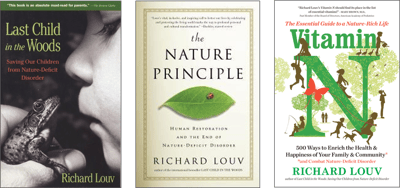Are the Children in Your Program Getting Enough Vitamin N?
– June 13, 2018
Community Education, Program Management, out of school time, before and after school program, Site Staff
Now that children spend so much time indoors and in front of a screen, they are lacking a nutrient that can help them emotionally, cognitively, and physically. This nutrient is Vitamin N, otherwise known as nature. Nature has a way of helping children’s imaginations, creativity, and wonder. It also has a way of alleviating symptoms of anxiety, depression, and attention deficit disorders. Afterschool programs are perfect for introducing more vitamin N into the lives of children.
Author Richard Louv introduced the world to the “nature-deficit disorder” in his book, Last Child in the Woods. To be clear, nature deficit disorder is not a medical diagnosis, but a term created after years of studies that showed children who lack exposure to nature on a regular basis, are more prone to anxiety, depression, and attention deficit disorders. Louv went on to write the books The Nature Principle and Vitamin N: The Essential Guide to a Nature-Rich Life in which he provides 500 activities for children and adults to reconnect with nature.
In addition to writing, Louv co-founded the Children and Nature Network. A place where researchers, medical professionals, and teachers could share findings and resources. The research and studies have shown that nature affects children in three specific areas.
1. The 5 Senses
By helping children unplug and play outside in nature, they are forced to use all of their senses. When children are playing games or learning through screen time, they have to block out everything else in order to concentrate on the screen. When in nature, children have the freedom to use all senses to observe and participate.
2. Creativity and Team Building
On a playground, children are given the tools to play. If children are playing in a field or nature area, they have to use their imaginations to create new games and tools for play. Children are learning skills that will help them with social interaction, imagination, and problem solving. This also provides opportunity for unstructured team building.
3. Reducing Stress and Anxiety
Nature can be very peaceful. If children are given the opportunity to just watch the clouds, listen to the wind in the trees, or watch butterflies dance from flower to flower, there is a wonder-filled calm that comes over them. As adults, we know the world is a big scary place and children aren’t prone to this. They need time to reconnect with nature and find peace. In doing so, it will alleviate stress and anxiety and can even provide better focus. According to Louv, just spending an hour a week can help alleviate some of the symptoms of depression and anxiety.
 There are many ways to incorporate nature into your afterschool program. Most programs have already started by including community gardens or butterfly gardens. You could bring your children out to a soccer field, have everyone lay down, and use their imagination to create shapes from the clouds. Or, you could look for insects in the grass and then observe to see what they do.
There are many ways to incorporate nature into your afterschool program. Most programs have already started by including community gardens or butterfly gardens. You could bring your children out to a soccer field, have everyone lay down, and use their imagination to create shapes from the clouds. Or, you could look for insects in the grass and then observe to see what they do.
Not only does nature help with creativity and imagination, but it inspires children and brings wonder into their lives. Nature is ever-changing and has so much to teach us. Use nature not only to provide inspiration for your program, but also for you.
